Terence McKenna: The Visionary of Psychedelic Consciousness
- McKenna's Early Years and Formation
- First expeditions: Nepal and Southeast Asia
- The Amazonian journey: a turning point
- Terence McKenna's Theories
- The Stoned Ape Hypothesis
- Timewave Theory
- Autonomous Entities
- Terence McKenna's Literary Work and Outreach
- Main Books
- McKenna's Style and Philosophy
- McKenna, the Psychonaut Speaker
- Criticisms and Controversies
- Terence McKenna's Legacy
- Resources
- References
Terence Kemp McKenna (1946-2000) was one of the most influential and controversial figures of the modern psychedelic movement. American philosopher, ethnologist, speaker and writer, McKenna dedicated his life to exploring altered states of consciousness, particularly those induced by naturally occurring psychoactive substances.
His work spanned from anthropology and botany to philosophy and speculation about the nature of reality, making him a fundamental figure for understanding the renaissance of academic and popular interest in psychedelics.
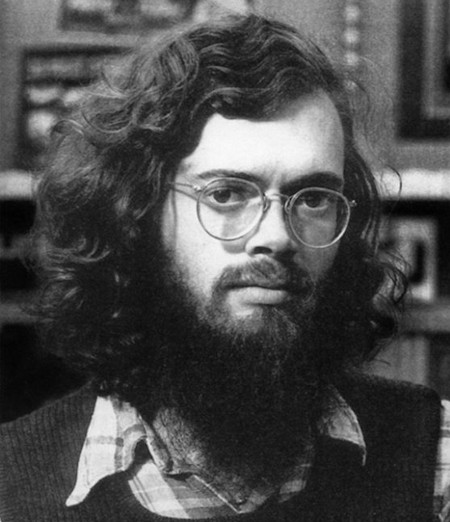
McKenna's Early Years and Formation
Born on November 16, 1946 in Paonia, Colorado, Terence McKenna grew up in a small rural community that he would later describe as deeply conservative. This early experience in a traditional environment contrasted markedly with the intellectual and experiential path he would subsequently follow. McKenna developed from a young age a voracious interest in reading and learning, especially in areas related to philosophy and natural sciences.
He studied at the University of California at Berkeley, where he graduated in 1969 with a bachelor's degree in ecology, conservation and resource management. This period coincided with the cultural effervescence of the 60s, when Berkeley had become an epicenter of American counterculture. The university provided him not only with rigorous academic training, but also exposure to radical ideas and social movements that would profoundly influence his worldview.
First expeditions: Nepal and Southeast Asia
In 1969, before completing his studies, McKenna embarked on his first major adventure outside the United States, traveling to Nepal guided by his fascination with Tibetan painting and hallucinogenic shamanism. During this expedition, he actively sought shamans from the Bön tradition, predating Tibetan Buddhism, with the goal of learning about the shamanic use of visionary plants.
The combination of academic interests with the adventurous search for transformative experiences and direct study of non-Western spiritual traditions would mark his life pattern.
The Amazonian journey: a turning point
In 1971, McKenna embarked on a journey that would radically change the course of his life. Together with several friends, including his brother Dennis, he traveled to the Amazon basin in search of psychoactive plants. This trip, which initially aimed at ethnobotanical exploration, became a transformative experience that McKenna would later describe as the most significant event of his life.
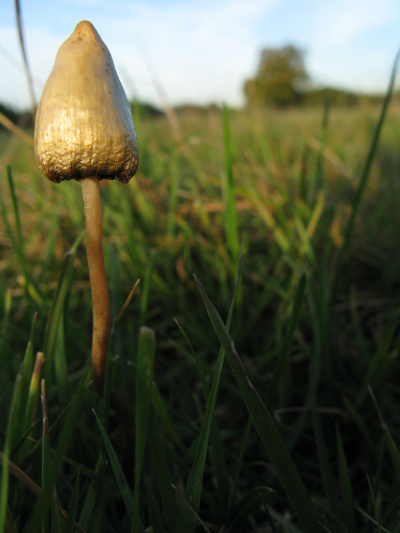
In the Amazon rainforest, McKenna not only experimented with various master plants, but also began developing his theories about the nature of consciousness and the role of psychoactive plants in human evolution. It was during this period that he experienced what he would call "the experiment at La Chorrera," an intense episode that involved the consumption of psilocybin mushrooms and resulted in visions and experiences that would influence all his subsequent works.
The Amazonian journey also marked the beginning of his interest in shamanic traditions and the ritual use of psychoactive plants in indigenous cultures. McKenna came to see in these ancestral practices a wisdom that Western civilization had lost, and considered that the rediscovery of these plants could be crucial for the evolution of human consciousness.
Terence McKenna's Theories
The Stoned Ape Hypothesis
One of McKenna's most well-known and controversial theories was the "Stoned Ape Hypothesis." According to this theory, the consumption of psilocybin mushrooms by early hominids would have been a catalytic factor in the evolution of human consciousness. McKenna argued that the effects of these mushrooms—including increased visual acuity, language stimulation, and promotion of social behavior—would have provided significant evolutionary advantages.
This hypothesis suggested that the accidental encounter of our ancestors with psilocybin mushrooms would have accelerated the development of language, creativity, and self-awareness. Although the theory was never widely accepted by the mainstream scientific community, it generated considerable debate and reflection on the role of psychoactive substances in human history.
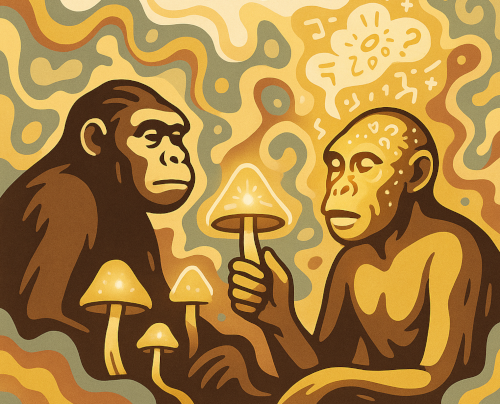
Timewave Theory
Another significant contribution by McKenna was his development of "Timewave Theory" or "Timewave Zero." This complex mathematical and philosophical theory proposed that time was not linear but followed undulating patterns of novelty and complexity. According to McKenna, these patterns could be mapped mathematically and used to predict periods of change and innovation in human history.
The theory culminated in the prediction that human history would reach a point of "infinite novelty" on December 21, 2012, a date that curiously coincided with the end of the Mayan long count calendar. McKenna interpreted this point as a temporal singularity where humanity would experience a radical transformation of consciousness.
Although this theory was also received with skepticism by the academic community, it demonstrated McKenna's intellectual ambition and his willingness to propose theoretical frameworks bold enough to understand human experience.
Autonomous Entities
A central aspect of McKenna's philosophy was his description of encounters with what he called "autonomous entities" during intense psychedelic experiences, particularly with DMT (dimethyltryptamine). McKenna described these entities as apparently independent intelligent beings that existed in parallel dimensions or hyperdimensional spaces accessible through altered states of consciousness.
These experiences led McKenna to question fundamental assumptions about the nature of reality and consciousness. He argued that these encounters were not merely hallucinations or products of imagination, but genuine interactions with non-human intelligences.
This perspective profoundly influenced his understanding of psychedelics as tools for accessing alternative realities and expanding the limits of human perception.
Terence McKenna's Literary Work and Outreach
Main Books
McKenna was a prolific writer whose works covered topics ranging from ethnobotany to speculative philosophy. His first book, "The Invisible Landscape" (1975), written with his brother Dennis, documented their experiences in the Amazon and presented their first theories about consciousness and psychoactive plants.
Among his early publications is also "Psilocybin Magic Mushroom Grower's Guide" (1976), a practical work co-written with Dennis McKenna under the pseudonyms O.T. Oss and O.N. Oeric. This technical manual provided detailed instructions for home cultivation of psilocybin mushrooms, becoming a fundamental reference for those seeking to access these substances independently.
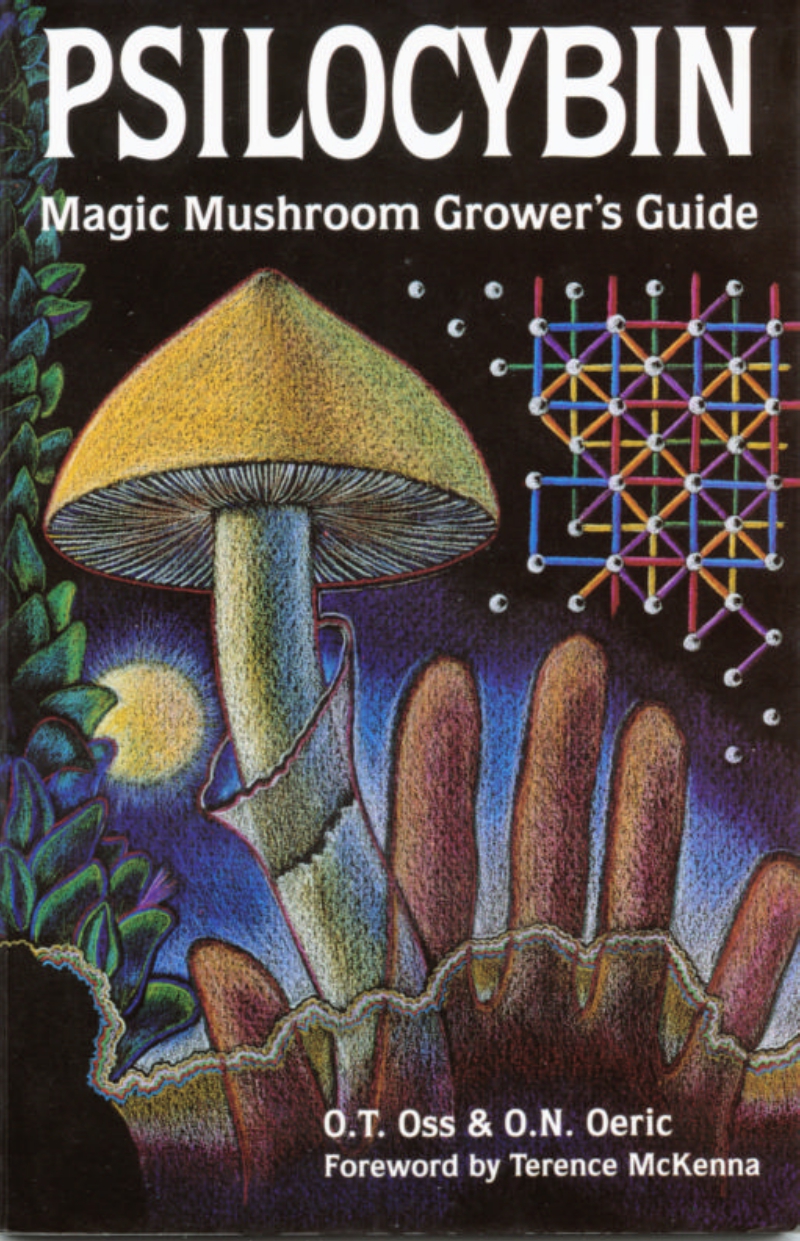
"The Archaic Revival" (1991) compiled essays and lectures that addressed a wide range of topics related to psychedelic culture, social criticism, and speculation about humanity's future. The title reflected McKenna's belief that humanity needed to rediscover ancestral wisdom to navigate the challenges of the modern world.
"Food of the Gods" (1992) was perhaps his most ambitious and academically rigorous work. In this book, McKenna presented his stoned ape hypothesis and explored the role of psychoactive plants in human history, from the origins of religion to the development of civilization. The book combined anthropological research, evolutionary speculation, and cultural criticism in a comprehensive argument about the importance of psychedelics for understanding the human condition.
"True Hallucinations" (1993) was a more personal narrative that recounted his Amazonian experiences and the theoretical developments that emerged from them. This book showed McKenna's more adventurous and experiential side, combining travel accounts with deep philosophical reflections.
McKenna's Style and Philosophy
His writing style was unique, combining intellectual rigor with bold speculation and evocative prose. He was able to move fluidly between academic references, personal experiences, and philosophical speculations, creating a discourse that was both informative and inspiring. His approach was interdisciplinary, incorporating insights from anthropology, botany, psychology, physics, and philosophy.
McKenna's philosophy was based on an optimistic vision of human potential to transform and expand consciousness. He considered psychedelics as key tools not only for personal growth, but as drivers of collective evolution toward more advanced forms of consciousness and social organization.
He harshly criticized modern Western culture for its disconnection from natural wisdom, its materialism, and its destructive impact on the environment. For him, the rediscovery of master plants offered a possible path to healing. At the center of his thinking was the conviction that consciousness is much more complex than traditional science recognizes, and that altered states allow access to equally valid and revealing realities.
McKenna, the Psychonaut Speaker
Beyond his writings, McKenna became one of the most charismatic and influential speakers of the psychedelic movement. His lectures, recorded and available on platforms like YouTube, combined academic erudition with irreverent humor and visionary speculation and are celebrated for their hypnotic energy and ability to blend science with cosmic speculation.
His presentations typically explored themes such as the nature of reality, the role of psychedelics in human evolution, criticism of modern culture, and speculations about the future of consciousness. McKenna was particularly skilled at articulating ineffable experiences and making apparently esoteric concepts understandable to general audiences.
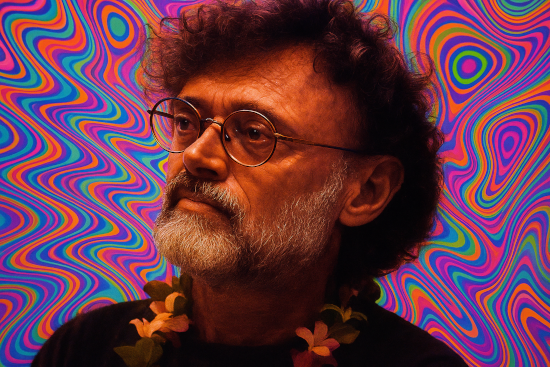
Criticisms and Controversies
Despite his influence, McKenna's work was not without criticism. Many academics questioned the scientific validity of his theories, particularly the stoned ape hypothesis and timewave theory. Critics argued that McKenna often extrapolated beyond what available data could support and that his speculations, while fascinating, lacked the empirical rigor necessary for scientific acceptance.
Others criticized his romanticization of indigenous cultures and the use of psychoactive plants, arguing that his perspective sometimes minimized the complexity and diversity of these traditions. Some anthropologists noted that McKenna tended to project his own Western interpretations onto shamanic practices without sufficient consideration of their specific cultural contexts.
There were also debates about the ethical implications of his promotion of psychedelic use, especially considering the potential risks and illegality of many of these substances. Some argued that McKenna did not provide sufficient warnings about potential dangers or necessary precautions for safe use.
Terence McKenna's Legacy
McKenna's death in 2000 marked the end of an era in psychedelic studies, but his influence continued to grow in the following decades. The contemporary renaissance of psychedelic research, led by institutions like the Johns Hopkins Center for Psychedelic Research and the Multidisciplinary Association for Psychedelic Studies (MAPS), owes much to McKenna's pioneering work in keeping academic discussion alive about these compounds during decades of prohibition.
His ideas about the relationship between psychedelics and creativity have found new relevance in contemporary research on microdosing and the use of psychedelics for cognitive enhancement.
McKenna's emphasis on the importance of establishing a respectable conceptual framework for the study of psychedelics has been fundamental to the success of the contemporary movement to legitimize these substances. His work helped create the vocabulary and concepts that current researchers use to discuss the therapeutic and transformative effects of psychedelics.
Terence McKenna left a legacy as provocative as it was profound. With his blend of erudition, audacity, and visionary passion, he opened intellectual pathways that still inspire us to think the unthinkable today. Although many of his ideas continue to be debated, his true contribution was revaluing the study of consciousness and psychedelics as legitimate tools for exploring the human condition. His work invites us to keep an open mind, to challenge certainties, and to continue exploring the mysteries of reality.
The problem is not finding the answer, but facing the answer. ― Terence McKenna
Resources
- Terence McKenna's last interview before passing away, in conversation with Erik Davis for Wired magazine, November 1999: https://www.organism.earth/library/document/interview-with-erik-davis)
- "A conversation with Terence McKenna", last recorded video interview: https://www.youtube.com/watch?v=GdEKhIk-8Gg
- "Psychedelic Salon" podcast, Spotify playlist with more than 280 interviews and talks by McKenna: https://open.spotify.com/playlist/0rTRoWpdLlKvsWYCab4ogG
- Official Terence McKenna Archive - Instagram: https://www.instagram.com/terencemckennaofficial
References
- https://archives.lib.purdue.edu/agents/people/2457
- https://en.wikipedia.org/wiki/Terence_McKenna
- https://www.edge.org/memberbio/terence_mckenna
- https://maps.org/news/bulletin/terence-mckenna-alien-dreamtime
- https://www.wired.com/2000/05/mckenna
- https://mckenna.academy




















